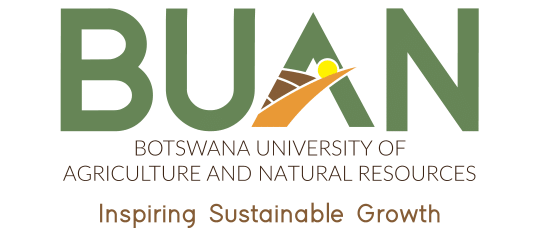
06 February, 2024
INCU-HIVE GRADUATE KAGISO GABAFEDIWE EMBARKS ON PIGGERY VENTURE WITH INSTITUTIONAL SUPPORT
In a testament to the efficacy of the INCU-HIVE programme offered by BUAN, Mr. Kagiso Gabafediwe, a graduate, celebrated a significant milestone today as he received the handover of four pigs.The event marked the end of his journey with the INCU-HIVE programme which started back in January 2021. When the INCU-HIVE programme commenced, the institution initially had a few pigs primarily for educational purposes, aiding in the practical learning experience for students. However, under Kagiso's stewardship and the resources provided by BUAN, the piggery venture has flourished, now boasting of over 150 pigs. During the handover ceremony, Dr Israel Legwaila iterated that the INCU-HIVE, a three year entrepreneurship incubation programme at BUAN aims to develop BUAN graduates into bussiness men and women who can run succesful and sustainable enterprises with cofidence. He further stated that upon completion, the programme provides benefits to graduates as a motivation towards migration of their enterprises out of the University. The case in point now being the handover of four pregnant sows to Kagiso. For his part, Mr. Monkgogi Motladile, who directly supervises licestock enterprises, extended his congratulations to Kagiso, acknowledging his pivotal role in the growth of the piggery venture within the INCU-HIVE programme. He emphasized the importance of Kagiso's dedication and encouraged him to continue his efforts, expressing optimism for the future of "Bantaro Porkers" (Kagiso's bussiness name) products in retail stores. In his closing remarks, Director, Business Development Mr Kealeboga Pifelo urged fellow INCU-HIVE participants to draw inspiration from Kagiso's journey and emphasized the importance of hard work and utilizing available resources, including government youth programs, to establish themselves post-INCU-HIVE. Expressing his gratitude, Kagiso thanked BUAN for the opportunity and pledged to continue his pursuit of excellence. Reflecting on the initial challenges he faced, he highlighted the growth and transformation witnessed within the BUAN INCU-HIVE programme. Mr. Gabafediwe's journey underscores the effectiveness of the INCU-HIVE programme in nurturing entrepreneurial talent among BUAN graduates. With institutional support and dedication, he has transformed an entreprenurial incubation initiative into edge to run thriving piggery venture. His success serves as an inspiration for future participants, demonstrating the potential for growth and achievement within the BUAN INCU-HIVE community. BUAN wishes Kagiso all the best in his endeavour
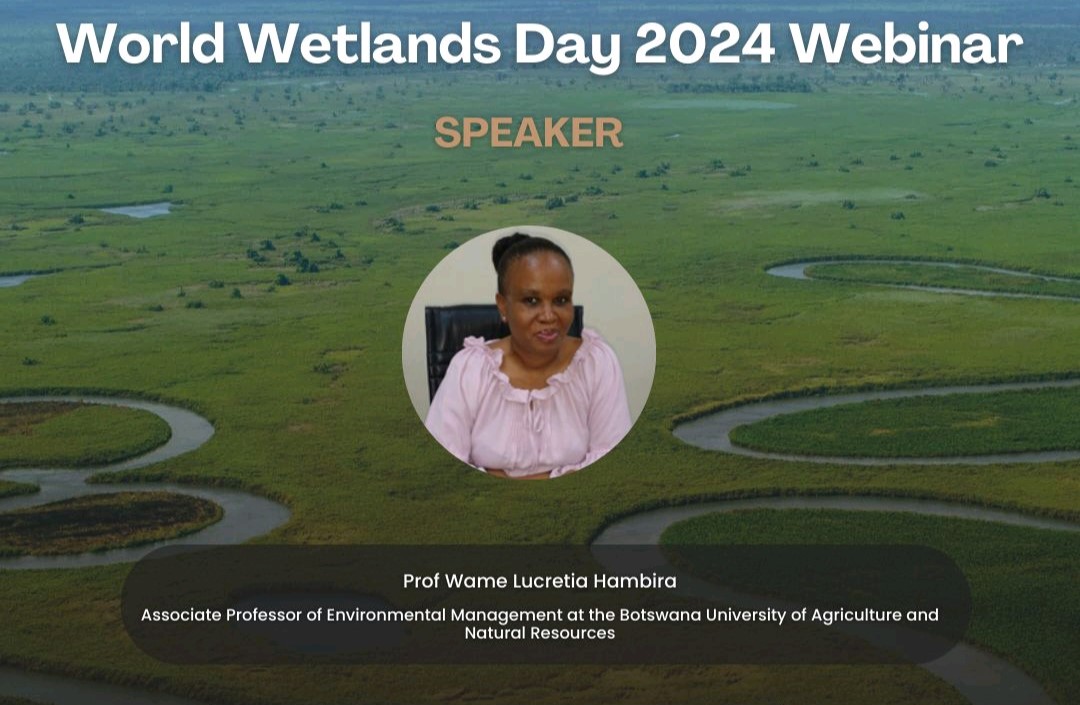
02 February, 2024
Professor Wame Lucretia Hambira speaks at the World Wetlands Day webinar
We take great pleasure in announcing that Professor Wame Lucretia Hambira had the privilege to speak at this year’s World Wetlands Day webinar organised by the Botswana Climate Change Network (BCCN) on 2nd February 2024. The theme for this year was “Wetlands and Wellbeing: Exploring the potential for climate resilience and adaptation”. The objectives of the Webinar were to raise awareness about the importance of wetlands in the local climate agenda, discuss national strategies for the conservation and protection of wetlands. Furthermore, to determine how different stakeholders could work together to advance wetland protection in a way that enhances livelihoods and human wellbeing. Wame Hambira an Associate Professor of Environmental Management here at Botswana University of Agriculture and Natural Resources indicated that Wetlands play a pivotal role in Botswana's economy and community livelihoods and studies show that some of the wetlands are vulnerable to climate change. She said that, conserving wetlands helps to mitigate against climate change and build resilience in pursuit of human wellbeing. She asked the audience to take a moment and think about the ecosystem goods and services derived from the Okavango Delta, water falls of the Moremi gorge, Gaborone Dam, Chobe River, Lake Ngami, Notwane River and other wetlands in the country. She asked them to imagine what would become of the country’s economy and rural livelihoods should the ecosystem services provided by these iconic wetlands be disrupted by either natural or anthropogenic drivers including climate change and pollution. This would have a negative impact on the communities would bear the brunt. The university appreciates all those who joined in on the webinar, since their contributions were valuable, and will translate into positive actions.
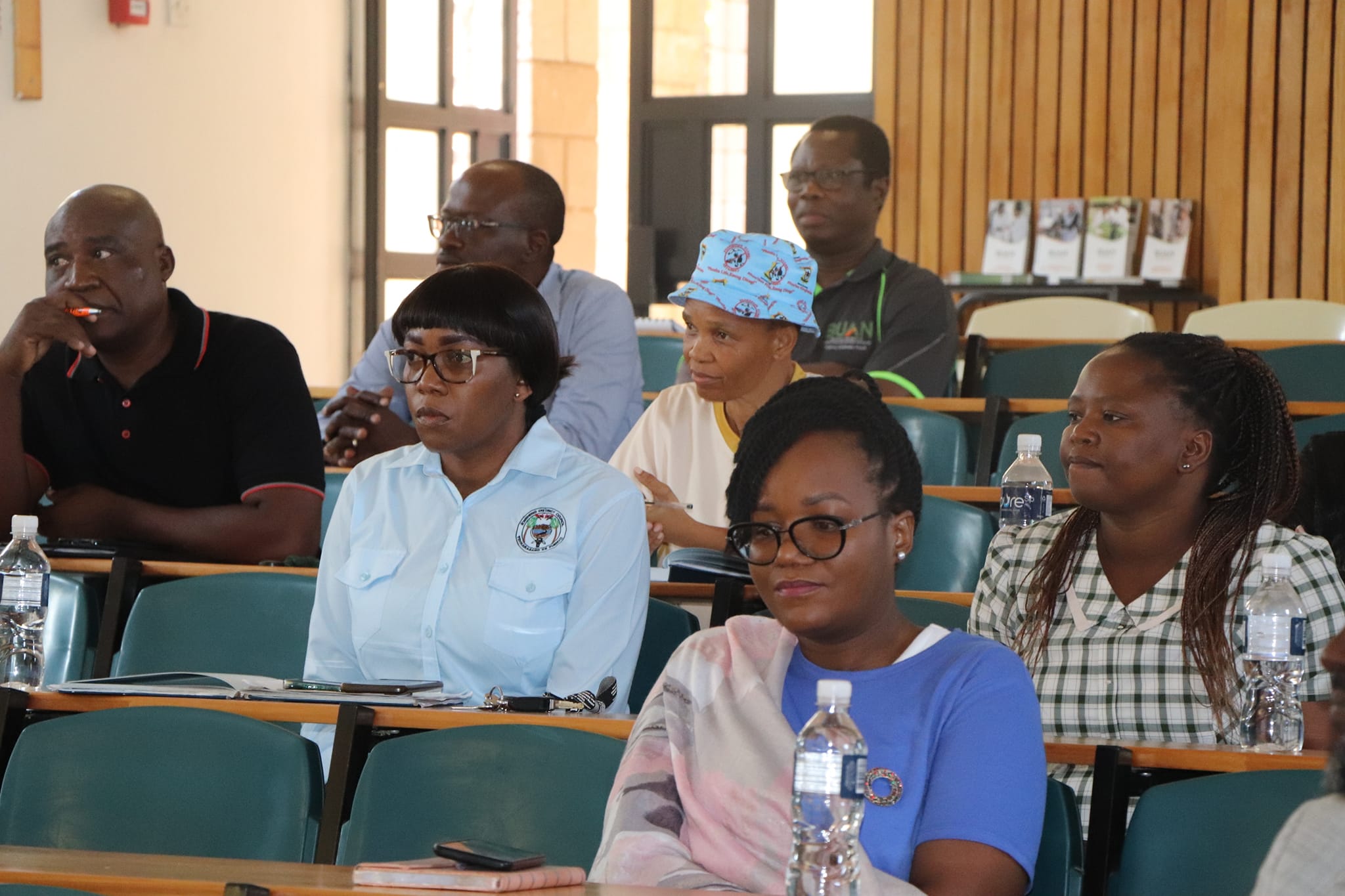
26 January, 2024
BUAN STAKEHOLDER CONSULTATION FORUM
Today BUAN was joined by stakeholders from various government ministries and departments for a consultative forum. Amongst these stakeholders were representatives from Ministries of Local Government, Agriculture, Lands and Water Affairs, Environment and Tourism, Botswana Prison Service, Tlokweng and Kweneng District Councils. The forum was organized by the Department of Academic and Students Services, and the objective of the forum was to share with stakeholders information about the programmes offered by the university, both old and new. Stakeholders had an opportunity to give feedback following the presentations made by various deans of Faculties. In the forum, discussions for potential collaboration were identified. It is from these very stakeholders, that BUAN has been receiving in-service students, and have pledged that they would continue to support the university as well as ensure that vulnerable communities in rural areas also gain access.
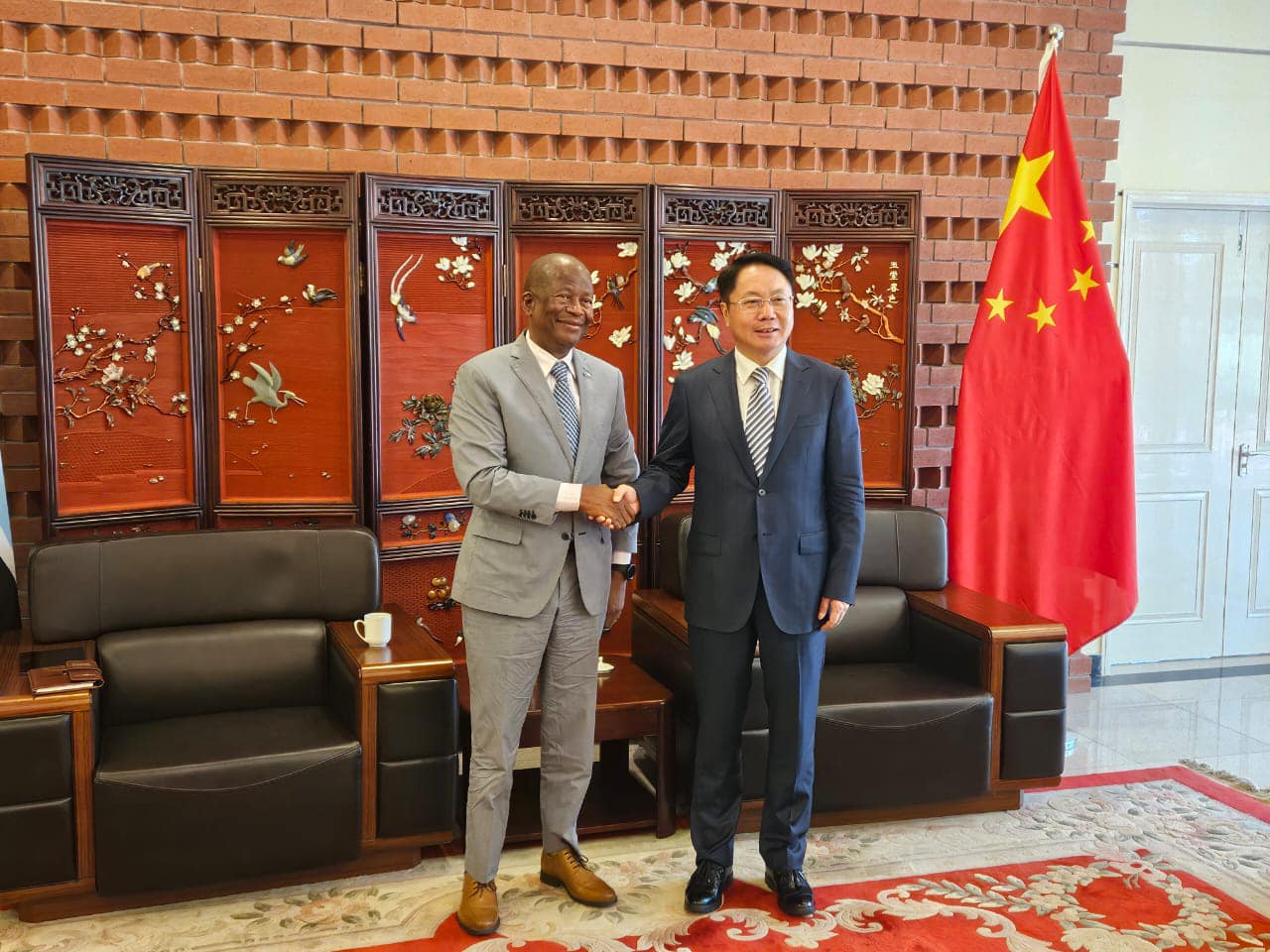
25 January, 2024
China-Botswana Collaboration: Bridging Economic Divide Through Partnerships Agriculture and Natural Resources
In a significant step towards strengthening bilateral ties, Botswana University of Agriculture and Natural Resources (BUAN) engaged in a collaborative discussion with the Chinese Embassy, paving the way for innovative agricultural partnerships between the two nations. The meeting, held at the China Ambassador's official residence on the 23rd of January, underscored the commitment of both parties to address key issues central to cooperation. The BUAN delegation, led by Prof. Ketlhatlogile Mosepele (Vice Chancellor of BUAN), included esteemed members such as Prof. Goemeone Mogomotsi (Council Secretary & Head of Legal), Prof. Utlwang Batlang (, Mr. Kealeboga Pifelo - Director of Business Development, and Mr. Kabelo Mosarwe - Executive Coordinator (Office of the Vice Chancellor). The Chinese Embassy Delegation, led by H.E. Wang Xuefeng, included representatives from various departments, emphasizing the comprehensive nature of the collaboration. The substantive agenda covered a wide array of topics, reflecting the depth and breadth of the cooperation. Discussions ranged from developments at BUAN and a review of China-Botswana cooperation to Botswana's agricultural scenario and challenges. Notably, the meeting delved into collaboration in traditional medicinal plant cultivation, emphasizing the importance of leveraging agriculture and natural resources as key pillars for Botswana's food sustainability. In his opening remarks, Ambassador Wang Xuefeng highlighted the ongoing agricultural cooperation between BUAN and Chinese institutes, emphasizing the untapped opportunities awaiting exploration. He stressed the need to map out future initiatives, especially in the context of agriculture and natural resources, which are crucial for Botswana's long-term sustainability. Prof. Ketlhatlogile Mosepele, the Vice Chancellor of BUAN, provided insights into BUAN's formation, strategy, and mission. He underscored the importance of research intensiveness and the development of partnerships at local, regional, and international levels. The Vice Chancellor also outlined current initiatives, including collaborations with Chinese companies involving drone technology, tractor donations, and signed Memorandums of Understanding (MOUs). Emphasizing the need for increased collaborations, he reiterated BUAN's commitment to research, particularly in medicine and medicine production technologies. BUAN's wish list, presented during the meeting, included aspirations for infrastructural developments, academic collaborations, reserved slots for BUAN in China Government scholarships, commercialization of BUAN's agriculture and natural resources activities, pursuit of technology and expertise, and research advancement. The meeting concluded with both parties expressing their commitment to the successful implementation of discussed opportunities. A symbolic handshake between the heads of the delegations signified the spirit of cooperation between Botswana and China. As the collaboration moves forward, it holds the promise of not only bridging economic divides but also fostering a sustainable and mutually beneficial partnership between these two nations. The exchange of knowledge, technology, and resources is set to leave a lasting impact on the agricultural landscape of Botswana, showcasing the potential for international cooperation to address global challenges.
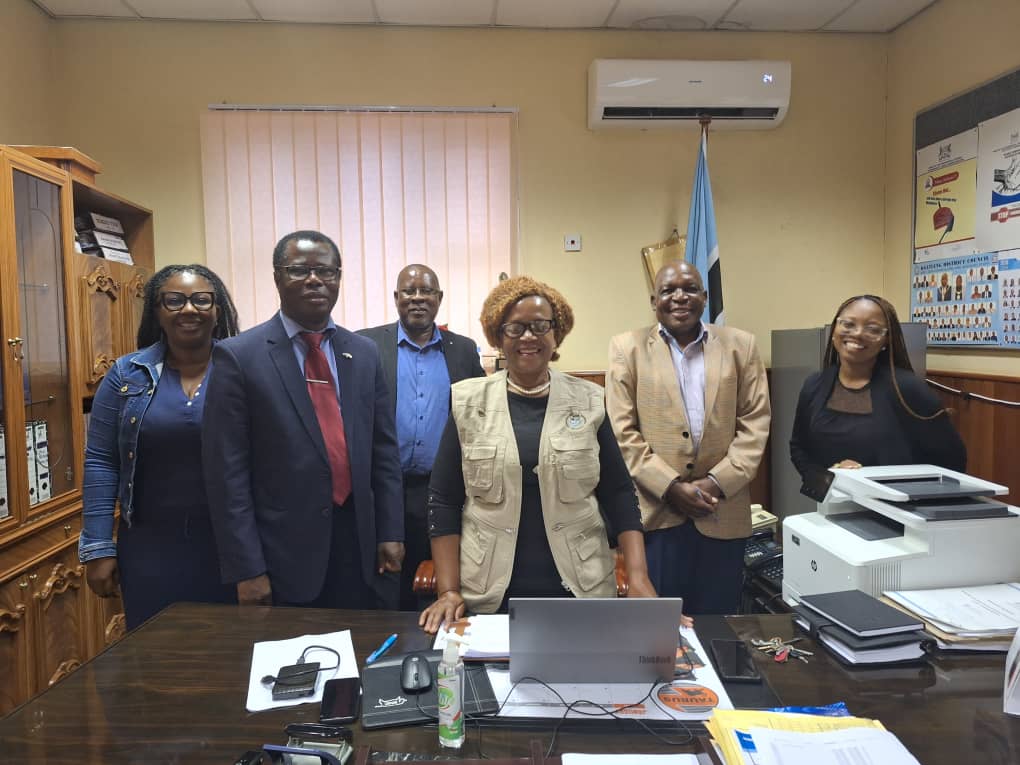
24 January, 2024
Modelling BUAN Adopted Villages for Extension and Integrated Sustainable Development in selected communities in Botswana (BAVE-Project)
A BUAN delegation consisting of Prof. Samodimo Ngwako, Prof. Dixon O. Torimiro, Dr. Nelson M. Tselaesele, Dr. Masa V. Motaung and Onkgopotse Moreri made a familiarisation visit to Kgatleng District Commissioner’s office in Mochudi on Wednesday 17th January, 2024 in preparation for kick-starting BUAN Adopted Village Extension (BAVE) project in Botswana. As head of delegation, Prof. Samodimo Ngwako introduced the project to the District Commissioner Kolobetse Sejakgomo and her assistant Tebogo Modise, by explaining that the goal of the project is to pilot - model Oliphant’s Drift community as one of the ten selected villages with a view to connecting the University and other related institutions with local communities. To highlight the objectives of the project, Prof. Dixon Torimiro, the Project Leader and Principal Investigator, explained that BUAN wishes to conduct a scoping exercise in the Oliphant’s Drift area, which will be used as extension laboratory for transferring BUAN technologies which will mitigate sustainable development challenges, especially in the agriculture and natural resources sectors. Dr. Nelson Tselaesele, a Co-Investigator, mentioned that the modelling activities, which is structured into eleven thematic areas based on the project objectives will cover 2 years (and perpetual afterwards). The agricultural technologies and innovations developed through the project are expected to increase agricultural productivity, production, enhance gender equity, youth/women empowerment and improve agricultural marketing channels through the commodity cooperative groups; and it will also engender needs-based innovative research and scientific publications of the University.
24 January, 2024
YET ANOTHER PHD CANDIDATE – Kelly !!!
Kelebonye Ramolekwa is studying PhD in Crop Science under Agronomy stream, in the Department of Crop and Soil Sciences. Her Ph.D. research project is on “Dissecting gamma irradiated induced polygenic mutations associated with yield and nutritional value in cowpea (Vigna unguiculata)”. This is a collaborative project between BUAN and NARDI, and she is under the supervision of Dr. Tait (BUAN), Dr. Lekgari (NARDI), Prof. Ngwako (BUAN) and Dr. Malambane (BUAN). The study aims to investigate the induced genetic variability and nutritional value of gamma- irradiated cowpea mutants to inform their food applicability. This is to find out if there is a any genetic variation or improved nutritional value of these cowpea mutants lines whether to be used directly by farmers or for biodiversity for future breeding programme. Her project has adopted morpho-physiological, biochemical, metabolomics and transcriptomics approaches to unravel the genetic variations associated with growth, grain yield and nutritional factors. Ms. Ramolekwa uses cowpea mutants irradiated at 300GY, 400GY, and 500GY doses with the background of Tswana cowpea. She is currently collecting photosynthetic-related parameters from the field experiment using multiSpeQ. These include data parameters such as light intensity, relative chlorophyll fluorescence, linear electron flow, photosystem II quantum yield and non-photochemical excitation quenching. After that, she will be conducting wet laboratory experiments consisting of biochemical analysis of enzymes, metabolite quantification, marker-assisted genotyping, and the transcriptional analysis of specific genes using real-time PCR. This is her 2nd field trial for the 2023/2024 growing season. The trial will be completed in March 2024. She is very determined and puts a lot of hard work to ensure that her project looks this beautiful to yield the expected results associated with improved growth, grain yield and nutritional value in cowpea.
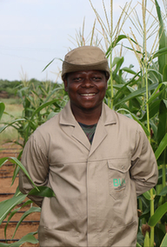
16 January, 2024
BUAN GRADUATE STUDENT PROFILING - Meet Our PhD Candidate - Sam!!!
Garmonyou Aloysius Sam is one of BUAN's international post graduate student. He comes from Liberia. He is studying PhD in Crop Science (Crop Protection Stream) at the Botswana University of Agriculture and Natural Resources. His supervisors are Prof. Bamphithi Tiroesele and Prof. Adebayo A. Omoloye. He is currently carrying out a research project titled ‘Bioecology and Management of Fall Armyworm (Spodoptera Frugiperda) in Botswana’. The FAW (Fall Armyworm) for the first time arrived and was officially confirmed in Botswana in 2017 (CABI, 2019). According to CABI, 2019, the pest is present in all regions of Botswana, where maize is cultivated. Since 2017, the FAW has become a significant pest in Botswana, notably for maize growers. For example, a severe damage impact on maize was reported by Makale et al., (2022) compared to sorghum. For this reason, most farmers rely on the use of assorted synthetic insecticides, some of which include (Deltamethrin, Cypermethrin, Chlorpyrifos, etc.) as an exclusive option for its containment. Farmers have expressed dissatisfaction regarding the inability of these insecticides against FAW. This could be due to lack of knowledge on FAW early identification, its biology (lifecycle) and feeding behavior, as well as overuse and improper application. A baseline study (survey) was done in six districts of Botswana to assess farmers’ knowledge, attitude, and practices of FAW management in order to inform research decisions for its sustainable control. The project comprises of five studies which will be carried out separately in order to ascertain a holistic answer to the research questions. One of the studies which is “To Evaluate the Efficacies of Selected Synthetic Insecticides and Entomapathogenic Insecticides against FAW under Laboratory and Field Conditions” is currently on going. The experiment started in October 2023 and is expected to end in February, 2024. The experimental site is located in BUAN Garden in Selebe. Seed-Co (SC 506), a hybrid maize variety from Seed-Co is used in the study. The experiment is a 6 x 3 Factorial Design laid in Randomized Complete Block Design (RCBD) replicated three times. Insecticide and Control is the main plot (Factor A) and Concentration is the subplot (Factor B). The size of the field is 819m2. The field is divided into three blocks of 64m x 3m (192 m2) each with a spacing of 2m between blocks. The blocks are sub-divided into plots of 3m x 3m (9m2) with spacing of 1m between plots. Each block contains 16 experimental plots, making it a total of 48 plots. Each plot contains five rows at a spacing of 0.75 m between rows with 10 plants on each row at a spacing of 0.3 m between plants, making it 50 maize plants per plot. The plots are drip-irrigated, and all other recommended agronomic practices, such as fertilizer application, weeding etc. are carried out. The study comprises of five insecticide-treatments, including two synthetic insecticides (Cyperfos, which is a combination of Chlorpyrifos 450 g/l and Cypermethrin 50 g/l and Ampligo, which is a combination of Chlorantraniliprole 100 g/l and lambda-cyhalothrin 50 g/l) and three entomopathogenic insecticides (Beauveria bassiana [2x109 spores/gram], Bacillus thuringiensis [Var Kurstaki Strain ABTS-351], and Nucleopolyhedrovirus-NPV [HearNPV 7.5x1012 Occlusion body/litre]) and one control. Each of the insecticides has three concentrations (Conc 1: Below recommended, Conc 2: Recommended and Conc 3: Above recommended), making it a total of 15 concentrations and a control. Each concentration is diluted with 1 litre of clean water and applied. The control plot is sprayed only with clean water of equal volume. Except for the insecticides used in the study, no other insecticide was applied. All treatments are applied at fourteen-day intervals beginning 25 Days After Planting (DAP) and repeated at 39 and 53 DAP. For each insecticide including control, a separate knapsack sprayer is used to avoid the combined effects of active ingredients. Sam worked tirelessly since the beginning of the experiment and during the December 2023 holidays to ensure the project bares the expected results. The following are the expectations of the study: The study will avail data that would credibly influence government policy decisions to strengthen pest management programs; Contribute to the critical crop protection needs of maize farmers; Highlight areas farmers struggle to recognize the FAW and negate misconceptions; Utilize novel management techniques; Develop compatible IPM-strategies under small-scale holdings; Farmers' choice of insecticide and dosage application will be enhanced. All the best in your research Sam!! Look out for his findings in the not-so-distant future.
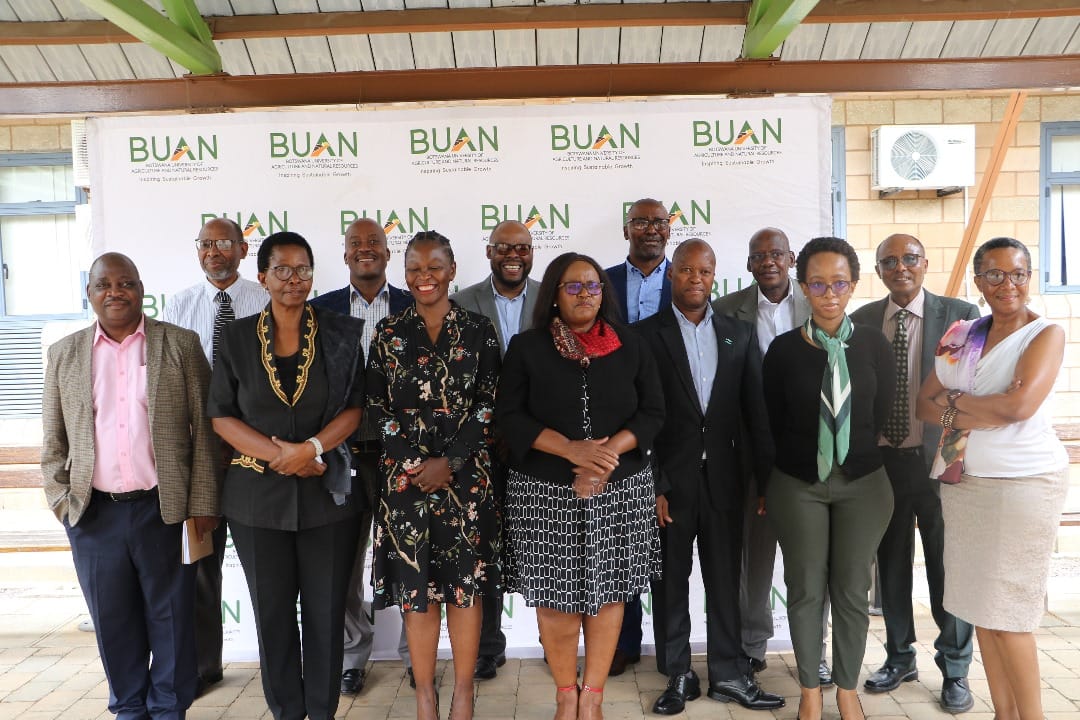
12 January, 2024
BUAN Strengthens International Ties: Ambassador Chingapane Explores Collaborations for Academic Excellence"
In recent years, the Botswana University of Agriculture and Natural Resources (BUAN) has demonstrated significant growth, establishing new partnerships both locally and internationally. BUAN had the distinct honour of hosting Her Excellency, Ambassador Benetia Tumelo Chingapane, the Ambassador of Botswana to Brazil. This marked another milestone as BUAN took a progressive step in fostering a new international relationship. The Ambassador’s visit aimed to gain insight into BUAN's offerings and acknowledge the collaborative partnerships it has fostered internationally. The Ambassador also explored potential collaborative opportunities with Chile, Argentina, Guyana, Venezuela, Colombia, the Caribbean Community (CARICOM) and the Southern Common Market (MERCOSUR) which fall under her jurisdiction. Present at this significant meeting were the Acting Vice Chancellor, Ms. Rebecca Mgadla and Acting Deputy Vice Chancellors (DVC) for Academic Affairs and Research, Professor Othusitse Madibela. They provided insights into BUAN's establishment, progress in developing new academic programs, ongoing research initiatives, and infrastructure development. During the meeting, Prof. Madibela highlighted the university's commitment to cultivating both local and international collaborations, emphasizing the pursuit of funding from NGOs and other institutions. He cited the successful partnership with Sao Paulo University, focusing on bioeconomy research, and expressed optimism for additional collaborations in the future. BUAN deeply appreciates Ambassador Chingapane's visit as a crucial step toward establishing more partnerships. These collaborations are integral to the institution's overarching goal of becoming research-intensive and achieving academic excellence. The university looks forward to building on these connections to further its mission and contribute meaningfully to the global academic and research community.
